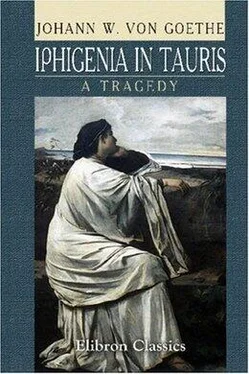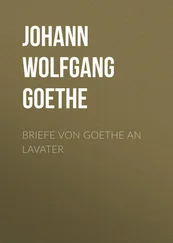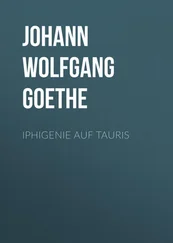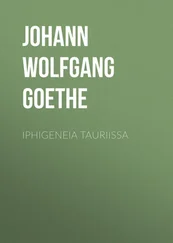SCENE III.
IPHIGENIA. THOAS.
IPHIGENIA.
Me hast thou summon'd? wherefore art thou here?
THOAS.
Wherefore delay the sacrifice? inform me.
IPHIGENIA.
I have acquainted Arkas with the reasons.
THOAS.
From thee I wish to hear them more at large.
IPHIGENIA.
The goddess for reflection grants thee time.
THOAS.
To thee this time seems also opportune.
IPHIGENIA.
If to this cruel deed thy heart is steel'd,
Thou shouldst not come! A king who meditates
A deed inhuman, may find slaves enow,
Willing for hire to bear one half the curse,
And leave the monarch's presence undefil'd.
Enwrapt in gloomy clouds he forges death,
Whose flaming arrow on his victim's head
His hirelings hurl; while he above the storm
Remains untroubl'd, an impassive god.
THOAS.
A wild song, priestess, issued from thy lips.
IPHIGENIA.
No priestess, king! but Agamemnon's daughter;
While yet unknown, thou didst respect my words:
A princess now,—and think'st thou to command me
From youth I have been tutor'd to obey,
My parents first, and then the deity;
And thus obeying, ever hath my soul
Known sweetest freedom. But nor then nor now
Have I been taught compliance with the voice
And savage mandates of a man.
THOAS.
Not I,
An ancient law doth claim obedience from thee.
IPHIGENIA.
Our passions eagerly catch hold of laws
Which they can wield as weapons. But to me
Another law, one far more ancient, speaks,
And doth command me to withstand thee, king!
That law declaring sacred every stranger.
THOAS.
These men, methinks, lie very near thy heart.
When sympathy with them can lead thee thus
To violate discretion's primal law,
That those in power should never be provok'd.
IPHIGENIA.
Speaking or silent, thou canst always know
What is, and ever must be, in my heart.
Doth not remembrance of a common doom,
To soft compassion melt the hardest heart?
How much more mine! in them I see myself.
I trembling kneel'd before the altar once.
And solemnly the shade of early death
Environ'd me. Aloft the knife was rais'd
To pierce my bosom, throbbing with warm life;
A dizzy horror overwhelm'd my soul;
My eyes grew dim;—I found myself in safety.
Are we not bound to render the distress'd
The gracious kindness from the gods receiv'd?
Thou know'st we are, and yet wilt thou compel me?
THOAS.
Obey thine office, priestess, not the king.
IPHIGENIA.
Cease! nor thus seek to cloak the savage force
Which triumphs o'er a woman's feebleness.
Though woman, I am born as free as man.
Did Agamemnon's son before thee stand,
And thou requiredst what became him not,
His arm and trusty weapon would defend
His bosom's freedom. I have only words
But it becomes a noble–minded man
To treat with due respect the words of woman.
THOAS.
I more respect them than a brother's sword.
IPHIGENIA.
Uncertain ever is the chance of arms,
No prudent warrior doth despise his foe;
Nor yet defenceless 'gainst severity
Hath nature left the weak; she gives him craft
And wily cunning: artful he delays,
Evades, eludes, and finally escapes.
Such arms are justified by violence.
THOAS.
But circumspection countervails deceit.
IPHIGENIA.
Which a pure spirit doth abhor to use.
THOAS.
Do not incautiously condemn thyself.
IPHIGENIA.
Oh, couldst thou see the struggle of my soul,
Courageously to ward the first attack
Of an unhappy doom, which threatens me!
Do I then stand before thee weaponless?
Prayer, lovely prayer, fair branch in woman's hand,
More potent far than instruments of war,
Thou dost thrust back. What now remains for me
Wherewith my inborn freedom to defend?
Must I implore a miracle from heaven?
Is there no power within my spirit's depths?
THOAS.
Extravagant thy interest in the fate
Of these two strangers. Tell me who they are,
For whom thy heart is thus so deeply mov'd.
IPHIGENIA.
They are—they seem at least—I think them Greeks.
THOAS.
Thy countrymen; no doubt they have renew'd
The pleasing picture of return.
IPHIGENIA,
after a pause
,
Doth man
Lay undisputed claim to noble deeds?
Doth he alone to his heroic breast
Clasp the impossible? What call we great?
What deeds, though oft narrated, still uplift
With shudd'ring horror the narrator's soul,
But those which, with improbable success,
The valiant have attempted? Shall the man
Who all alone steals on his foes by night,
And raging like an unexpected fire,
Destroys the slumbering host, and press'd at length
By rous'd opponents or his foemen's steeds,
Retreats with booty—be alone extoll'd?
Or he who, scorning safety, boldly roams
Through woods and dreary wilds, to scour the land
Of thieves and robbers? Is nought left for us?
Must gentle woman quite forego her nature,—
Force against force employ,—like Amazons,
Usurp the sword from man, and bloodily
Revenge oppression? In my heart I feel
The stirrings of a noble enterprize;
But if I fail—severe reproach, alas!
And bitter misery will be my doom.
Thus on my knees I supplicate the gods.
Oh, are ye truthful, as men say ye are,
Now prove it by your countenance and aid;
Honour the truth in me! Attend, O king!
A secret plot is laid; 'tis vain to ask
Touching the captives; they are gone, and seek
Their comrades who await them on the shore.
The eldest,—he whom madness lately seiz'd,
And who is now recover'd,—is Orestes,
My brother, and the other Pylades,
His early friend and faithful confidant.
From Delphi, Phoebus sent them to this shore
With a divine command to steal away
The image of Diana, and to him
Bear back the sister, promising for this
Redemption to the blood–stain'd matricide.
I have deliver'd now into thy hands
The remnants of the house of Tantalus.
Destroy us—if thou canst.
THOAS.
And dost thou think
The savage Scythian will attend the voice
Of truth and of humanity, unheard
By the Greek Atreus?
IPHIGENIA.
'Tis heard by all,
Whate'er may be their clime, within whose breast
Flows pure and free the gushing stream of life.—
What silent purpose broods within thy soul?
Is it destruction? Let me perish first!
For now, deliv'rance hopeless, I perceive
The dreadful peril into which I have
With rash precipitancy plung'd my friends.
Alas! I soon shall see them bound before me!
How to my brother shall I say farewell?
I, the unhappy author of his death.
Ne'er can I gaze again in his dear eyes!
THOAS.
The traitors have contriv'd a cunning web,
And cast it round thee, who, secluded long,
Giv'st willing credence to thine own desires.
IPHIGENIA.
No, no! I'd pledge my life these men are true.
And shouldst thou find them otherwise, O king,
Then let them perish both, and cast me forth,
That on some rock–girt island's dreary shore
I may atone my folly. Are they true,
And is this man indeed my dear Orestes,
My brother, long implor'd,—release us both,
And o'er us stretch the kind protecting arm,
Which long hath shelter'd me. My noble sire
Fell through his consort's guilt,—she by her son;
On him alone the hope of Atreus' race
Doth now repose. Oh, with pure heart and hands
Let me depart to expiate our house.
Yes, thou wilt keep thy promise; thou didst swear,
That were a safe return provided me,
I should be free to go. The hour is come.
A king doth never grant like common men,
Merely to gain a respite from petition;
Nor promise what he hopes will ne'er be claim'd.
Then first he feels his dignity complete
When he can make the long–expecting happy.
Читать дальше












